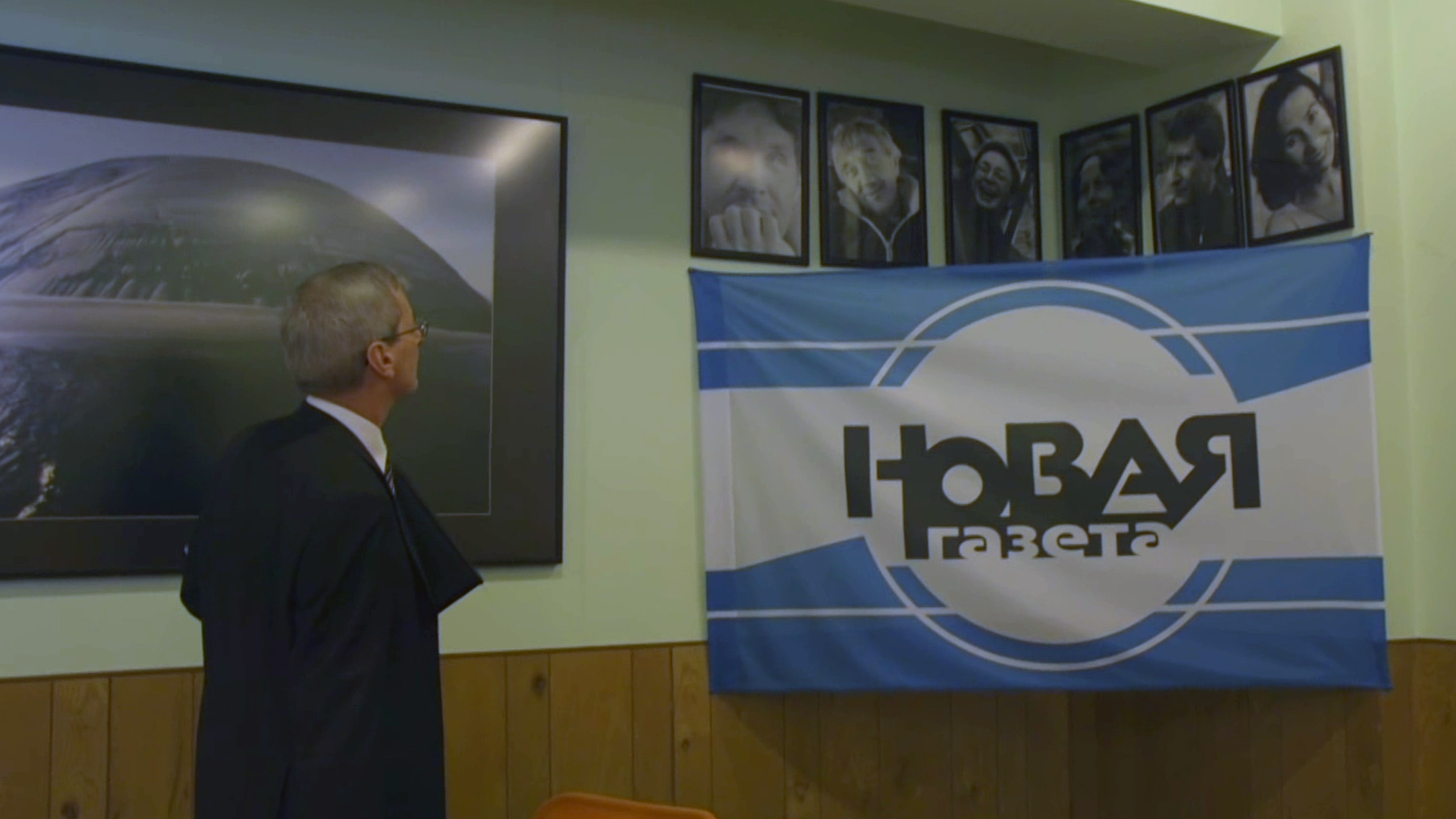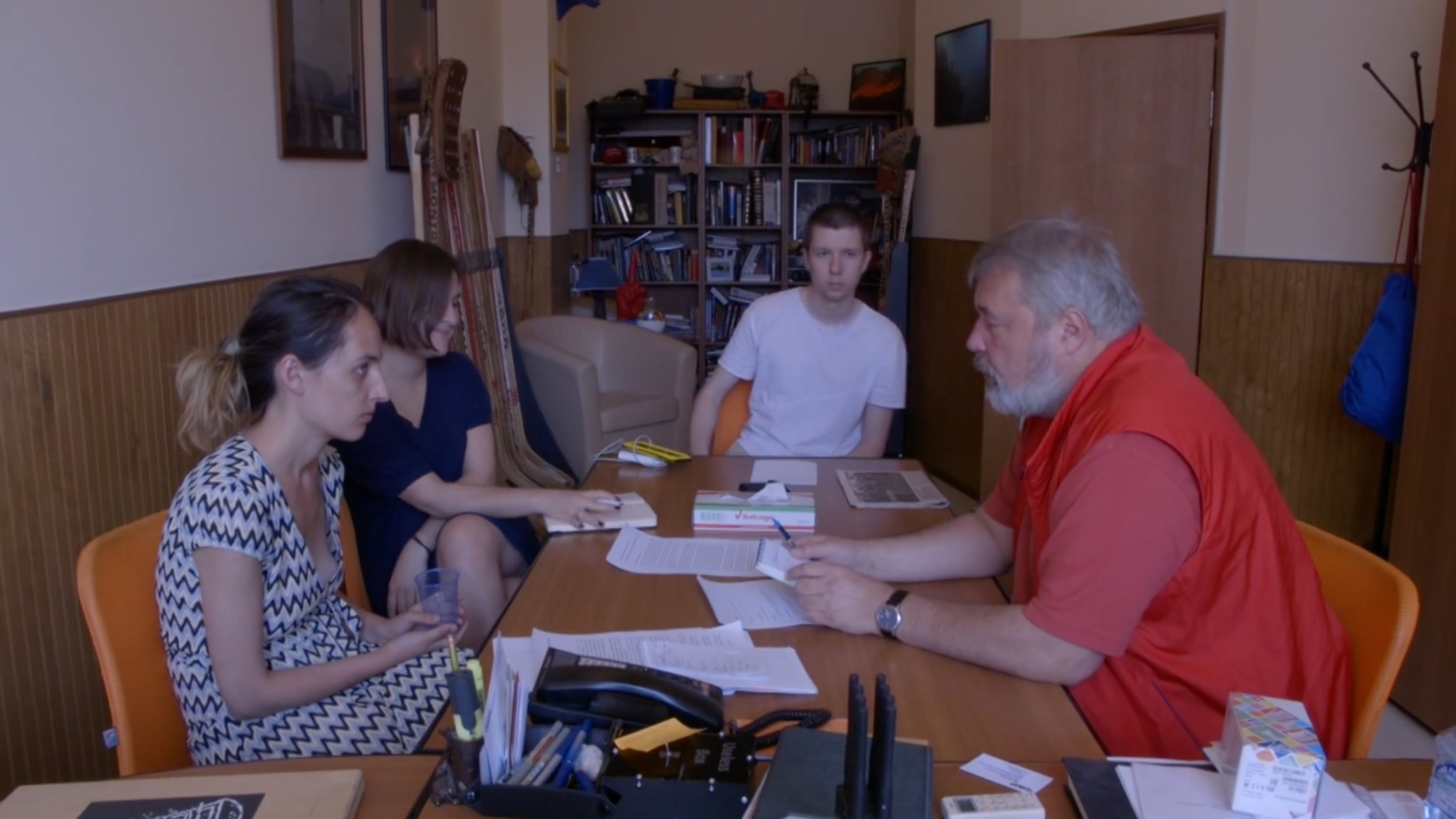Not Moscow – Novaya // Verzió X Utca&Karrier

In our eyes, accustomed to the spectacles of Hungarian reality, it might seem like we are in the sphere of ideas reminiscent of the current situations in our country. However, the work these stereotypic, jaded, Eastern European journalists are doing in offices full of cigarette smoke cannot be brushed off with a cynical smile; their journalism does exemplify the essence of the fourth power. How is that possible, you ask? If we were in a Russian realism novel we would be suspicious, since nothing is what it seems; everything is a hoax and everyone is a fraud.
Even if we try to peel away these stereotypes, and rely on our objectivity and background knowledge, we must admit that Russia makes no sense at all. Of course, we are not the first to come to this conclusion, and there we haven’t managed to break free from stereotypes. We are stuck in the snow; the horses’ neigh makes their fatigue visible in the cold air.

Photo: Novaya
Only the iPads on the tables tell us where we are in time. We could be anywhere between 2018 and the radioactive fall of the Soviet Union. Not that there is a difference. It is also misleading how the presence of war and conflicts are as dominant in the buildings as geopolitical constants. The newsroom is surrounded by this ominous, incomprehensible but yet not frozen… aura? atmosphere? mode of being? From outside it seems as this might just be the dark matter that fuels the engine of the Novaya Gazeta.
Many have already said that here in Mother Russia, lots of folks think literacy is unnecessary when one can smell meat a mile off. An old, proven recipe. A cultural reflex. Understandably, the general readership of the newspaper is the “intellectual elite”, in addition to the distant, sometimes effective, often hypocritical international community. Naturally, these journalists are well aware of this. How is that even possible, you ask? It is clear how they maintain their autonomy money-wise, but our untrained eyes have a hard time detecting the ideological bias in their writings.

Photo: Novaya
We become conscious of our nighttime-blindness in a panic, realizing that this is not about parties, ideologies, buddies, pacts, the nuts and bolts math of elections, cooperation and fights, or even politics as we Hungarians think about it, for that matter. In such an autocratic state, parties, ideologies, pacts and buddies all mean the one same thing; the plural “s” is just courtesy. But Novaya does not seem to play this game. They focus on investigating the events in conflict zones, protecting human rights and painting a picture of a more humane Russian society. Without any kind of lofty bullshit.
It is worth watching how they work and how the editor-in-chief solves a conflict in the newsroom quoting Baudrillard. Watching him made my three colleagues and I look at each other knowingly and quickly realize that we had been caught in a time warp. It was surreal, an armored truck stopped by us outside, while inside we all knew that Csernyenko has been dead for a good 30 years. We are going. We have to go.
Being alive hurts. But still. Not Moscow. Especially, when goat heads arrive by post alongside bullets, grenades, white powders and news of the deaths of colleagues. Or when three police officers slam you in their car and you don’t even know why. We are stuck in the snow; the horses’ neigh makes their fatigue visible in the cold air. Suddenly a Volga comes around the corner and it slips on the icy road. The driver tries to correct, but they crash into a lamppost a few meters away from us. The horses are just as startled as we are; the truck is squeezed like an accordion. What the fuck was that? By the time the horses calm down, I notice that the former driver’s soul is leaving his body from the wreck that devoured it and starts to ascend towards the sky, but about one or two meters in the air it detects someone or something and it glides down towards it, right through my horse, and it disappears at the end of the road. We should call for help. The lights are on in a building right across the street, I am lucky to have spotted it in this blizzard. I hand over the reins to my colleague, and I sprint towards the light as fast as I can. They have electricity so they must have a phone, too. As I turn around, I catch sight of the ghost, who no longer flies but actually walks. The night security guy is curled up with a good book. He looks up from his book and I ask him: “What the fuck is going on here, tovarish?” He says: “Nothing” and he gets back to his book. The ghost is much taller now, it has a mustache and it is probably headed towards the K..-Bridge and it vanishes into thin air.
[There are many marked and unmarked references from Gogol, Márai, Bulgakov, Pelevin, Dostoevsky, Jerofejev and Shakespeare.]
Endre Cserna
This article was published in a special edition by Verzió and Utca&Karrier in October 2019.